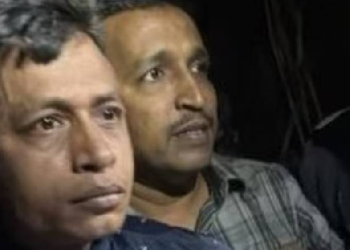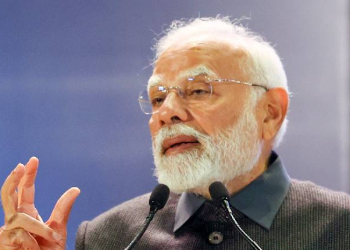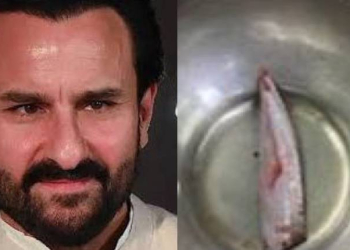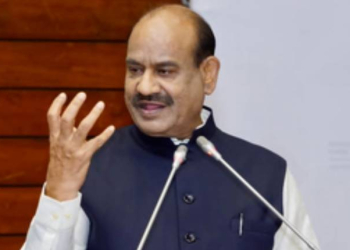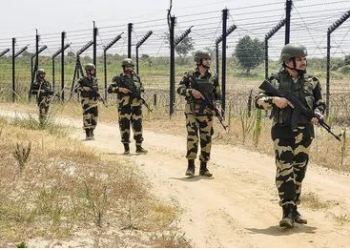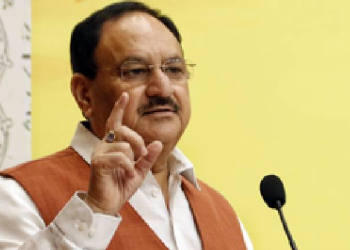New Delhi: India is facing massive heat wave conditions while at other times, different extreme climatic conditions have had an adverse impact. Also, air pollution is no longer restricted to Delhi-NCR.
The Ministry of Environment, Forest and Climate Change is making efforts to address these issues, but at the same time, environmentalists allege that there are efforts at dilution in environmental norms.
In an interview with IANS, Environment Minister Bhupender Yadav answered questions related to all such issues.
Here are the excerpts from the interview:
Q: The recent report by the Inter-governmental Panel on Climate Change (IPCC) has warned of dire consequences for the world, especially for South Asia, in view of the extreme climatic conditions. Our climate action plans are from the 2010s. What is the government doing to update these?
A: The IPCC report has vindicated India’s position; it has validated all that India has been saying all along. India has the least per capita consumption in the world. Prime Minister (Narendra) Modiji has emphasised on people having an environment-friendly lifestyle. The AR6 report underscores exactly this need.
We feel the fight against climate change is a collective one, and all countries need to contribute to it. The developed countries should live up to their promises of climate finance and technology transfer. All countries should get a level playing field for mitigation and adaptation.
In view of this, our NDCs (Nationally Determined Contributions) as part of the Paris Agreement, 2015 have been tapped (as part of national action plan). New NDCs are being discussed and a central committee and a task force are working on it. We are also working on upgradation.
Q: You have declared a total ban on single use plastic (SUP) from July 1. How do you plan to deal with the ban? What kind of preparations are being made and what is the strategy for producers, traders and consumers?
A: We have conducted meetings with various associations about the notification (to ban SUP) for bringing more and more clarity about it. The Central Pollution Control Board (CPCB) has brought out an app regarding this; there is also a provision of day-time monitoring.
First, the notification, the information about it; second, stakeholder consultation for preparing them for the ban; and third, future monitoring system after June 30. Artificial Intelligence would be used for monitoring, therefore there would be lot of focus on app/s.
Plus, the Environment Ministry has started carrying out awareness drives, especially among the youth.
Q: Air pollution has continued to affect more and more cities and for a longer duration, not just in winters, and beyond Delhi-NCR. Government programmes such as National Clean Air Programme (NCAP) or Commission for Air Quality Management in Delhi NCR and Surrounding Areas (CAQM) seem to be making no difference. Why so?
A: We have almost worked out the whole plan for the National Clean Air Programme (NCAP). We held a regional conference for four states in Mumbai. In Delhi-NCR, we held a two-day meeting as part of the CAQM with multiple stakeholders and worked out an action plan. Just last week, I reviewed the action plan. Soon we are planning to put it into action.
The Union Budget this year mentioned air pollution caused by vehicles and industries, among others. The Environment Ministry is coordinating with other ministries on this. We are soon going to hold other regional events under the National Clean Air Programme.
Q: The Environment Ministry recently released river rejuvenation DPRs for 13 rivers. Can you tell us more about it? Which is the first project that would be taken up?
A: It was not the Ministry, but it was prepared by the Indian Council of Forestry Research & Education (ICFRE), Dehradun. It is about rejuvenating non-glacier fed 13 rivers – going beyond the river Ganga – with forestry interventions. Some other ministries would also be involved in this.
We recently held a review meeting at Amarkantak, the origin of Narmada river. The Minister of State for the Jal Shakti Ministry and the Madhya Pradesh Chief Minister were there. We had also invited several NGOs. The Madhya Pradesh government has decided to stop all new construction in the catchment of the tributaries feeding the Narmada.
These non-glacier fed rivers need a holistic approach – preserving the natural catchment for water; adaptation of better practices in the agriculture belt along the river and in the urban areas, the STPs to ensure no sewage is dumped into the rivers. We are taking the ‘whole of the government’ approach in collaboration with the states.
There are about 250 big and small rivers originating in our tiger reserves. In this time of ‘Amritkaal’, our Prime Minister has given a call for ‘Amrit Sarovar’ in each district. It is going to be an unprecedented work in the field of water conservation.
We already have 49 Ramsar sites in India and we have sent applications for 20 more. We hope to have 75 wetlands designated as Ramsar Sites.
Q: There have been multiple amendments to the Environment Impact Assessment (EIA) notification of 2006 over the last few months, some proposed, some already done. Environmentalists have accused the ministry of diluting the provisions. Why is the government on this spree, that too without public notice and going to the Parliament?
A: We have not carried out any such change that will need a public hearing. But there were certain OMs (office memorandum) that were issued by the ministry under the EIA system. If you ask me about a specific OM, I can tell you why we did what we did.
We are currently working on the upgrading of the Parivesh portal (online status of environment clearance, forest clearance and also that under National Board for Wildlife for any project). Once it is done, all these laws that work parallel to each other, all the amendments or OMs, all these should be streamlined into a particular format so that there is a balance of environment and development.
Also, this work would be done with more transparency. Plus, it can be monitored better in a digital manner. When this is done, we will share the details.
(IANS)



